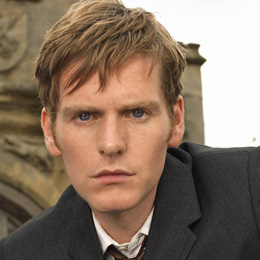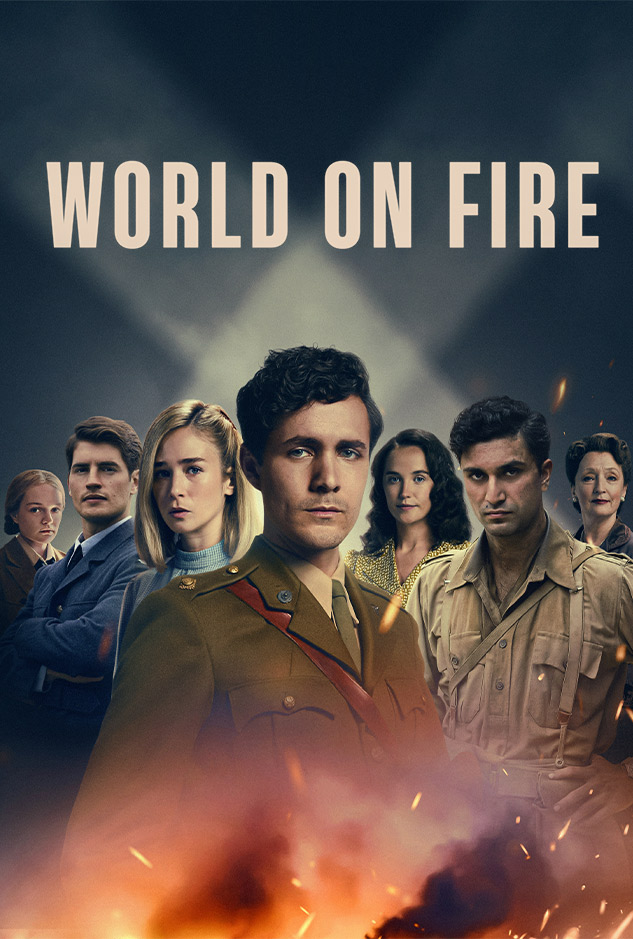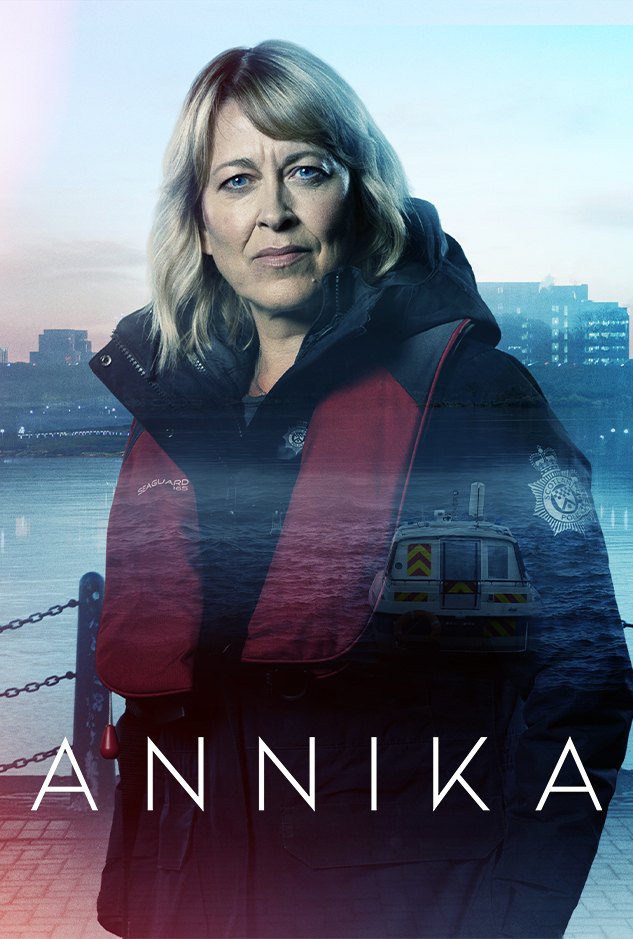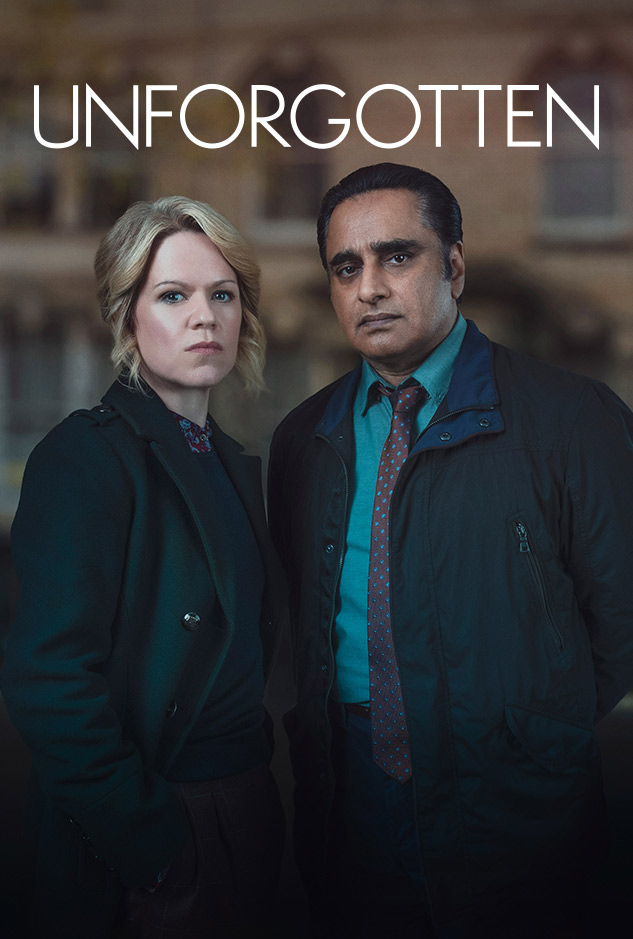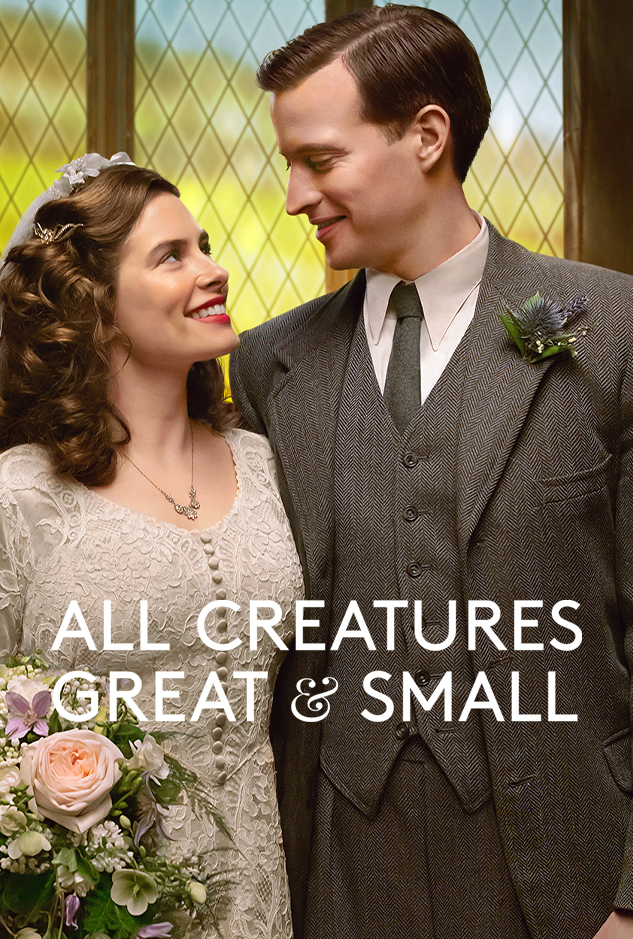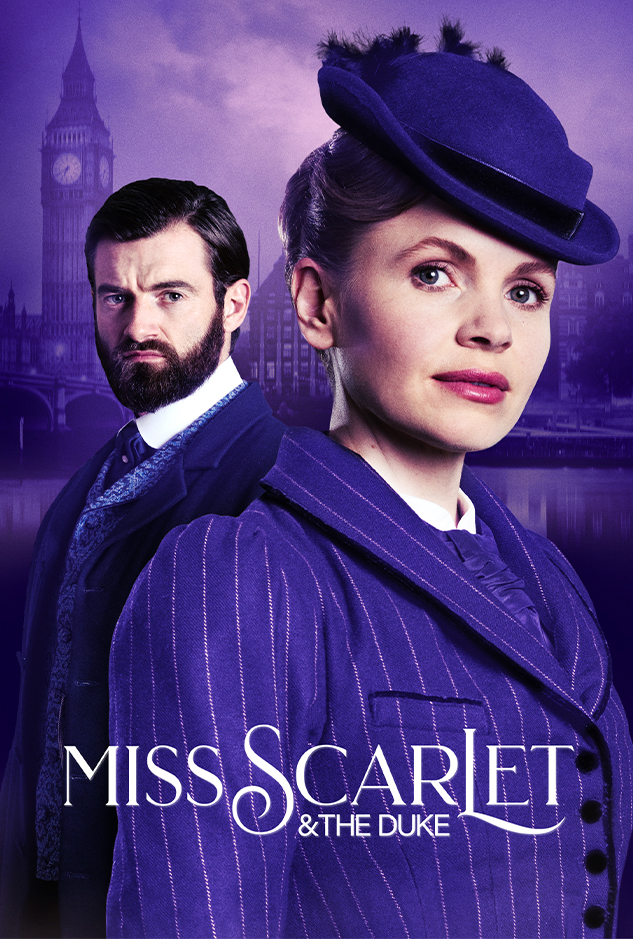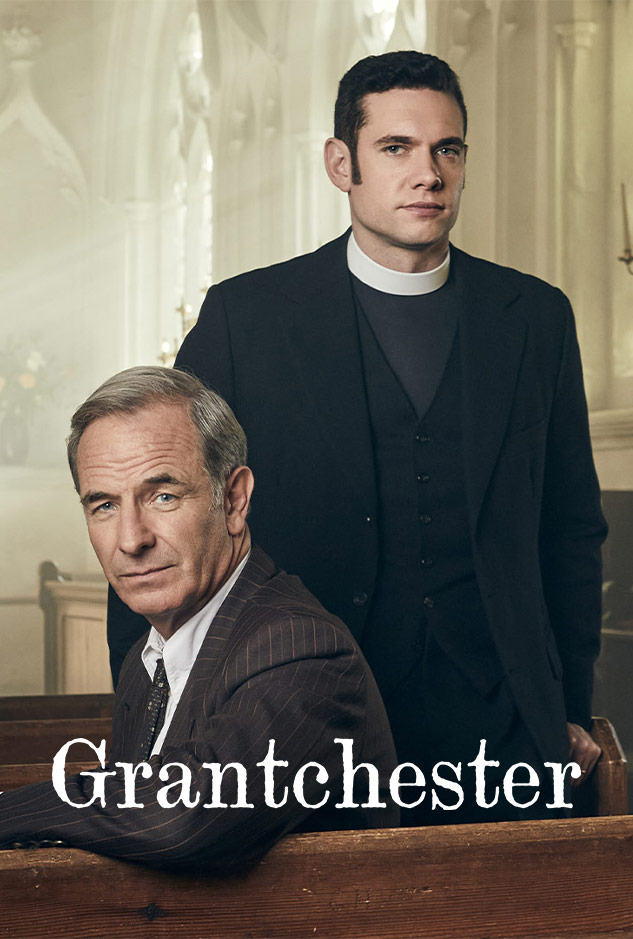Interview: Shaun Evans on Endeavour’s Finale
After a decade of playing iconic British detective Endeavour Morse, Shaun Evans brought Endeavour to a powerful conclusion with its gripping series finale, “Exeunt.” In a conversation with MASTERPIECE, Evans shared his genuine reflections on saying goodbye, that last ride in the Jag, returning to Oxford, where we left Morse, and a certain message in a bottle. Read on, and mind how you go.
Contains Significant Series Finale Spoilers
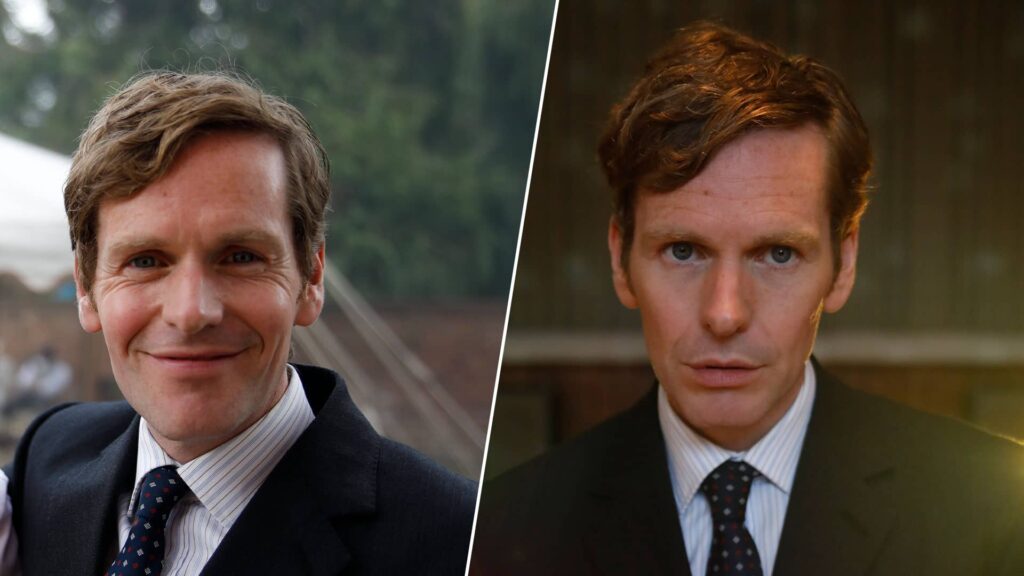

From the decision to end the series to the script to the filming, what was your experience in making “Exeunt”, the Endeavour series finale?
Well, of course, we knew that the end was coming, and we’d all agreed on that, and it’d been a very harmonious agreement—we all knew where the story would go, where it would end for the characters, for all of them. And myself and Roger [Allam, Fred Thursday], we’d been a huge part of helping to make those decisions about where we felt we should leave it. And then when the script arrived, I thought, “Yeah, that’s really powerful. That’s it. That’s exactly what it should be.”
It had been all of our intentions for us to leave in exactly this place, physically and emotionally and mentally, as well. As we all know, we were in a strange way passing the baton on—even though you’re passing it backwards, because it’s something that’s been already, it’s going on—so we knew that this seems the only right place to leave it. The idea of being with Joan completely gone, being disappointed with Thursday, and in a way, perhaps, accepting of his lot, which I know was kind of melancholic place to leave it, but the really right place to leave it.
Shooting it was a really interesting experience, because the way it was staggered, every couple of days we’d say goodbye to another person, to Anton [Lesser] or to Abigail [Thaw] or to Sean Rigby or to Roger [Allam]. And then the final day was just myself, as it turned out, for the final sequence, driving up and down in Blenheim Palace. That felt really powerful, because it was a tying up just for me, and to just have the opportunity to spend all day driving around in the Jag.
In the final setup, I’m driving up and down the huge long driveway of Blenheim Palace as the sun was setting, and I thought, “Oh, yeah.” It felt like a very natural and easy and right letting go, like a perfect little gift in a way. It wasn’t tearful or sad. I don’t feel that way about it, to be honest. I just feel very grateful and very pleased with the work that we’ve done. It doesn’t feel bittersweet—it just feels sweet.
That is lovely, and I’m so glad. As for Morse, when we leave him, do we know he’ll be okay? Is that in this grasp?
I don’t think we do, and neither do I think we should, either. Because if you think about it, there’s, what, 10 or 15 years before we return to the Inspector Morse series? So we’ve got how long before he becomes an inspector? And who’s not to say that those years won’t be incredibly sad and won’t be incredibly desperate and depressing for him? So I think we know he does continue, but what shape does the next few years take? And I imagine they’d be pretty depressing. So I don’t think he is okay. But I also think life’s messy, innit? Life is that way. Sometimes you have moments of real joy and happiness, and then others of not. And I think that’s where we live. And in a way, I think that’s why I feel proud.
There are many things that I feel proud and pleased with, but I feel really proud and pleased that we left it there, in a way that strikes a chord, rather than pretending that, “Oh, and then he gets the girl and then he gets promoted and drives off into the sunset.” But actually, no, he doesn’t get those things, but continues. And his lot at the moment is acceptance of who he is and his place in the world with all of his foibles and all of his hangups. And in a way, if I read any fiction or if I see any stories, those are the ones that mean more to me, those where we leave them in a melancholy place rather than a place of certainty and happiness.
I imagine that after playing Morse for a decade and understanding him so well, it would be impossible for you to get this kind of distance—but is there any part of you that, like a viewer might, wished for a different ending for him or for Thursday?
Yeah, totally. I mean, of course. I’m not this heartless person who wouldn’t want both of these characters to end up in a much happier and much more harmonious place. But as you say, it’s been almost a decade long. All of us—myself, Roger [Allam], Russell [Lewis, writer], Damian [Timmer, executive producer], have wrestled with where we do leave them and how we get them to this point. And I think it’s right. I feel like it would make all of our work as storytellers over the past couple of years less, had we left them in a harmonious place.
Do I wish that he would’ve ended up with Joan? Would that have even brought him happiness? I mean—at least this is my interpretation of it—I don’t think that even that would’ve brought him happiness. It may have brought him happiness in the short term, but then what? And I think there’s something kind of perfect about the glimmer of hope, Oh, had it worked out, that could have been a wonderful thing. But actually, would it have been a wonderful thing? I don’t know. Do you know what I mean? Because if it would’ve, why didn’t he do it? But you are absolutely right. It’s nigh impossible for me to see it from the outside, in a way, after all this time.
The ending is absolutely right, and it is perfect. And it is heartbreaking. Is there anything that you wish to convey to fans who in this moment will be feeling closure and a deep sense that this is a very right ending, but who are also going to be really, really sad?
Well, I think it’s an incredible thing, isn’t it, that stories and fiction—and I’m like this too with great novels and great TV and great movies—it’s great to be able to feel something. It’s great that something can live for us so much that you would feel bereft when it’s done. That’s kind of an extraordinary thing, isn’t it? And how lucky we are as humans to have stories and to be able to tell one another stories. That’s my feeling.
I agree. These stories, they’re how we learn about human nature and how we process the world around us and how we feel.
And what connects us to one another. So it’s kind of extraordinary in that sense.
Yes. And we can still hold on to the silver lining that Thursday lived, because no small number of us worried that he was going to have to die!
Totally, right? But I mean, what’s worse, to die or to be banished? I wonder.
I don’t know—that’s a question for an Oxford philosophy don! Have you been back to Oxford since you finished?
Yeah, I have been back a fair bit. It’s got a real special place in my heart, now, Oxford and the whole experience. I was doing a job not long after we finished, and I was feeling a bit the usual sort of insecurities and anxiety about it, and on the way to move down to relocate for this other job, I thought, “I know, I’ll just pop into Oxford and pick up a few things.” And then I thought to myself, “How funny, how interesting that I’ve just done that.” I clearly needed to go and touch base with something. Do you know what I mean?
It’s like anywhere you go to university, I guess, as well—it’s got that special place in your heart. And then it changes because all the people go and the events and things go. But it’s still enormously special to me.
As you look back and reflect on spending a decade of your life in this project, what do you make of it, how do you feel?
Well, a number of things. First and foremost, gratitude. Gratitude for this experience to have fallen into my lap. An offer came out of the blue to come and play this part for what we thought would be one one-off 90-minute film for TV, and then turned into something else entirely. And also gratitude to be allowed to be in people’s homes, not just in the UK, but all over the world. For people to welcome you back season on season and go with you and the story that you’re telling with open arms is just an extraordinary thing.
To be honest, the magnitude of it only hit me when the last episode aired here in the UK. I was working in Wales at the time. Obviously I’d seen it a lot, so I didn’t feel the need to watch it, and I was on my own anyway, so I ended up just going for a walk and listening to some music. But then at 10 o’clock when I knew that it had finished, my phone just exploded with messages, emails, texts from people who I hadn’t seen for years and years and years. And people who were my closest friends as well, and family. But there were so many messages and I thought, “God, how extraordinary that, even people I haven’t seen for a while.” And then strangers would stop me in the street and say, “I thought the ending was amazing.” I don’t know, I just feel like that’s an extraordinary thing.
I’ve always sort of banged on about that and said, “Oh, the responsibility of wanting to improve it year-on-year. And if people are giving you that 90 minutes, then you have to make that the best that it can be.” But to feel like for some people, perhaps, you’ve been subconsciously one tiny, tiny thread of the fabric of their lives over the past few years—it is an extraordinary thing. And I feel really blessed about it, I feel really grateful for it. So that’s one element.
And then when I reflect on the 10 years, I feel like, yeah, I suppose it does feel like coming of age, in a way. Even though I’d been working for 10 years prior to starting the job, I hadn’t been doing any directing. I hadn’t been so invested in pre-production, post-production conversations with the network, being at the center of the story like this.
And now as I go into other jobs, both acting and directing, I feel the experience of what that has taught me. And that’s an amazing thing. The confidence that that gives you is extraordinary. I just feel really grateful, to be honest about it. And it’s funny because I feel no melancholy, no sadness. It ended at the exact right time. I don’t look back at it like halcyon days. It was a time that came and was incredible.
And in a way, going back to the beauty of this job and being able to be a storyteller, the work continues. The work goes on. When I’m finished, the work has a life. It’s like a message in a bottle you’re throwing in, and you don’t know where it’s going to wash up, what shore it’s going to wash up on. And then it’s independent of you. It doesn’t belong to me. As soon as it’s done, it’s gone. And there’s a great relief in that, too, and that’s why it doesn’t feel melancholy or bitter. It just feels the work has been done. And my hope, now as ever, is that the audience take it with open arms or accept it with the generosity with which it was given. If that makes any sense.








